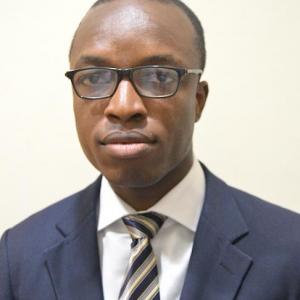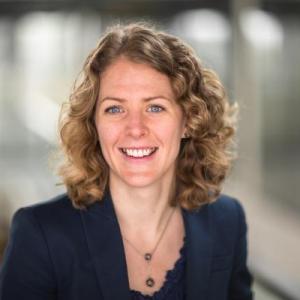Short description:
My name is Dr. Jack López I am a medical and social anthropologist specialising in barriers to healthcare, sexual health and care ethics. My broader interests are intimate life, gender and intersectional life-course in societies affected by violence and/or conflict. My research region is principally, though not exclusive to Mexico, Latin America and the UK. I am Associate Dean Equality, Diversity and Inclusion for the Faculty of Management, Law and Social Sciences, University of Bradford, UK.
Short description:
I am an epidemiologist and professor at the George Washington University School of Public Health. My primary expertise is in worker safety and health, and have held Senate-confirmed public health positions in the administrations of President Barack Obama (in which I was Assistant Secretary of Labor for Occupational Safety and Health) and President Bill Clinton (Assistant Secretary of Energy for Environment, Safety and Health). Since the COVID-19 pandemic began, I have worked to improve the protection of workers exposed to SARS-CoV-2. My research has also focused on the integrity of the science underpinning public health and environmental protections. On this topic, I wrote “The Triumph of Doubt: Dark Money and the Science of Deception" (Oxford University Press, 2020) and "Doubt is Their Product" (Oxford University Press, 2008).
Short description:
Dr. Norbert Edomah is currently an Associate Professor (Reader) in Energy Policy and Electricity Planning at the School of Science and Technology, Pan-Atlantic University, Lagos, Nigeria. He has over 15 years of industrial and academic experience in the energy field. His principal research interests lies in the multidisciplinary field of energy policy, electricity planning and sustainability. He is keen about understanding how people respond to (and influence) changes in energy infrastructure systems. He is author of several academic peer-reviewed journal articles on various aspects of energy. His recent book on Electricity and Energy Transition in Nigeria, published by Routledge, is the first major research monograph that covers the dynamics of energy transition and energy systems change in Nigeria from a historical, policy, governance, consumer, industrial policy and future perspectives. He is a Chartered Engineer (CEng) with the Engineering Council UK and a registered member of the Council for the Regulation of Engineering in Nigeria (COREN). He is also an Associate Fellow of the Higher Education Academy (Advance HE) UK.
Short description:
Dr. Anouk S. Rigterink (PhD London School of Economics 2014) is an Assistant Professor of Quantitative Comparative Politics at Durham University, United Kingdom. She studies the political economy of development, violent conflict and natural resources. She has published work on so-called 'conflict minerals', and investigates competition between large-scale industrial, and small-scale artisanal miners. Other published work include a Randomized Controlled Trial on whether community monitoring can decrease deforestation in Uganda, and whether drone strikes targeting terrorist leaders affect terrorist attacks. Finally, Anouk studies how experiencing violent conflict affects individuals' behaviour. She has done fieldwork in Uganda and South Sudan.
Short description:
M. Jae Moon is Dean of the College of Social Sciences and Underwood Distinguished Professor of the Department of Public Administration as well as Director of the Institute for Future Government at Yonsei University. He co-chaired the Infectious Disease Study Group of the National Research Council for Economics, Humanities, Social Sciences under the Prime Minister’s Office. He is an elected Fellow of National Academy of Public Administration (NAPA). He served as International Director of American Society for Public Administration and Vice President of Korean Association of Public Administration as well as the Korean Association of Policy Studies. He was selected as one of world’s 100 most influential people in Digital Government 2018 and 2019 consecutively by Apolitical which is a London-based leading nonprofit organization. He also received Order of Service Merit-Red Stripe from the Government of the Republic of Korea for his contribution to the public sector innovations as well as Donald C. Stone Award from the American Society for Public Administration in 2020. Specializes in public sector innovation.
Short description:
Senior Policy Associate at J-PAL Europe, focusing on humanitarian programming, financial inclusion and SMEs development. Previously worked in the Gulf as a consultant, serving public sector organisations on a broad range of projects in education, health, finance and infrastructure.
Short description:
I work to promote evidence-informed policy in Environment, Energy, and Climate Change through the King Climate Action Initiative (K-CAI) at J-PAL. K-CAI generates evidence and catalyzes the scale-up of high-impact policy solutions at the nexus of climate change and poverty alleviation in partnership with governments, NGOs, donors, and companies worldwide.



